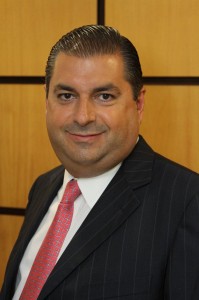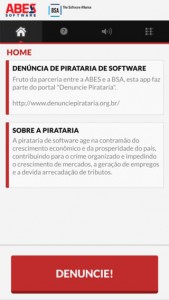
By Jorge Sukarie, President of the Brazilian Association of Software Companies (ABES)
The national software industry has enormous potential to develop innovative solutions, although it still needs incentives, both for research and development and to dampen the flow of piracy that slows the growth of the sector and prevents Brazil from becoming more competitive.
The rampant performance of the counterfeiting trade led the National Council to Combat Piracy (CNPC), an organ linked to the Ministry of Justice, to elect the need to have a dimension of this impact in Brazil, with more exact figures referring to crime, as the main action for the new Plan to Combat Piracy, announced on May 15th. To this end, several activities were suggested to be carried out by 2016, based on three main areas of activity: educational, economic and inspection. The objective is to obtain a more accurate radiography of piracy in the country.
Aware of its role and the importance of supporting the government, the Brazilian Association of Software Companies (ABES) launched, this year, the Legal Entrepreneur Campaign - http://www.empreendedorlegal.org.br, with the objective of raising awareness among Brazilian businesspeople from all sectors about the delay and the damage they can cause to their segment of activity and to the Brazilian economy, by making use of counterfeit copies of computer programs in their company. The campaign points out the legal and technical risks, in addition to highlighting the benefits of betting on legal software.
As well as this campaign, there are also other initiatives in Brazil, such as the Cidade Livre da Pirataria program. Created by the CNCP and managed by the Brazilian Institute of Ethics in Competition (ETCO), this action aims to be able to integrate the inspection and enforcement agencies to act in the municipal sphere. In the city of São Paulo alone, the program has already disclosed the seizure of more than R $ 2 billion of counterfeit products between the months of December 2010 and October 2012.
The Anonymous Complaints Against Pirate Software portal http://www.denunciepirataria.org.br/, created by ABES and BSA I The Software Alliance, is also part of these national initiatives against the crime of piracy, which has specific punishments in the country This year alone, this communication channel received more than 2.500 complaints and contributed, in March, to the seizure of 550 illegal media, carried out by local authorities in 25 computer resellers suspected of practicing irregular commerce.
However, in order to reduce the current 53% of software piracy in the country, all this great undertaking by the government and by the entities that defend the Brazilian software industry needs, a lot, the awareness of companies and users. There is no advantage in buying a counterfeit product, a crime that steals jobs in the country, reduces tax collection, which would be used to benefit society, and also encourages organized crime.
For those who still believe they are doing a good business competing in the market with illegal software licenses, a study carried out in 95 countries, recently released by the BSA I The Software Alliance, concluded that legal software brings greater economic stimulus than pirated software. The increase of just 1% in the use of legal software worldwide would bring a global return of US $ 73 billion. In contrast, with the same growth, the use of pirated software would add less than a third to the global economy, or about $ 20 billion.
This year, IDC also issued a warning to companies that still believe it is convenient to compete in the market illegally and have not provided an audit of their technology park to check which licenses are active on their machines.
The research institute revealed that the chances of infection by unexpected malware reach one in three consumers and three in ten companies. As a result, consumers will spend 1,5 billion hours and $ 22 billion to identify, repair and recover their equipment from the impact of malicious code. Transnational companies must spend $ 114 billion to deal with the impact of a cyber attack, when they could invest in development, innovation and new jobs.
The new Plan to Combat Piracy also foresees investments in innovation and entrepreneurship, fundamental areas for suppliers to develop new offers, with the same quality and more competitive prices in relation to the pirate market.
All these efforts with actions of repression, market research and awareness campaigns aim to inform that the bet on legal software is not only the acquisition of an original product. It is an investment in the professional who works in the market, in the evolution of technology, in the employment generated from research and development in new software. In this way, the whole society benefits, making the economy more heated and the country more competitive.


 The Brazilian Association of Software Companies (Abes) and BSA - The Software Alliance launched the “Denounce Piracy” application to receive anonymous reports about corporate software piracy. The download is free and compatible with Android, IOS and Windows Phone platforms.
The Brazilian Association of Software Companies (Abes) and BSA - The Software Alliance launched the “Denounce Piracy” application to receive anonymous reports about corporate software piracy. The download is free and compatible with Android, IOS and Windows Phone platforms.

